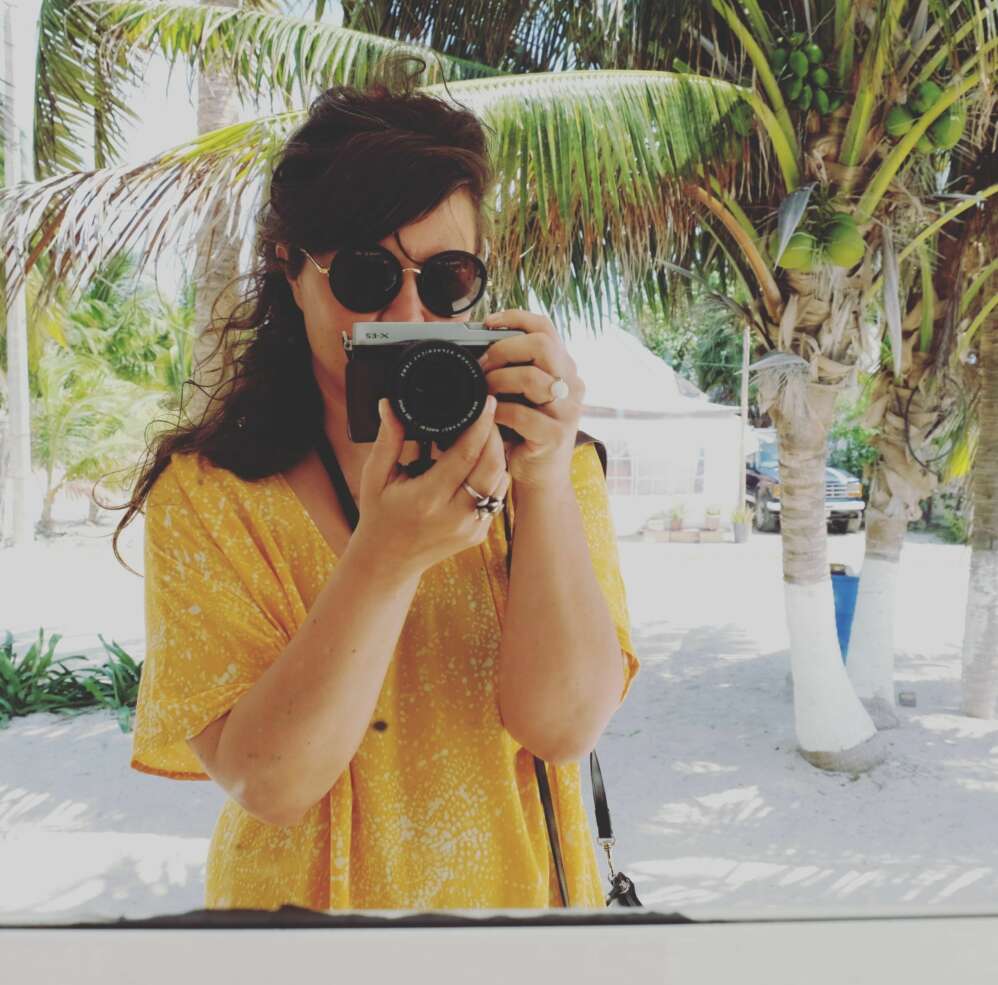
Marie Skovgaard: “I’m interested in women with a mission”
Marie Skovgaard: “I’m interested in women with a mission”
The Danish film The Reformist-a Female Imam will kick start on Wednesday CPH:DOX’s 2019 programme dedicated to women.We spoke to the director.
Maria Skovgaard’s The Reformist-a Female Imam is an inspiring film about women empowerment, focusing on Danish activist Sherin Khankan, as she tries to establish Europe’s first mosque led by female imams in the heart of Copenhagen.
For more than three years, Skovgaard has followed Khankan as she holds on to her dream of reforming the patriarchal interpretations of the Qur’an, with a group of progressive Muslims. We witness the restless activist, as she fights internal disagreements, growing Islamophobia and conservative Muslims.
The film competing for the festival’s DOX: Award is produced by Jesper Jack of House of Real, with support from Nordisk Film & TV Fond among others. First Hand Films handles world sales.
First of all, what does it mean for you to open CPH:DOX?
Marie Skovgaard: It’s a huge honour and I can’t think of a better start for the film: everyone who helped make the film will be present. I’m proud, excited and nervous.
When did you first get the idea for the film?
MS: It started almost four years ago. I knew about Sherin Khankan as she is a public figure and I had met her before. When I heard of her idea to create a mosque I got very curious. I’m very interested in women on a mission who want to make an impact, change the status quo. I discussed with Sherin and asked if I could be part of the very first meetings she held about the creation of the mosque. I was therefore able to follow her even before she became an imam. It was a true privilege.
As a non-Muslim did you have to do much research to understand the challenges that Sherin Khankan was facing in her efforts to reform the reading of the Qur’an to make it less patriarchal?
MS: My film is not about Islam and Muslims in Denmark, rather about a woman who is a Muslim, a mother, a feminist, an activist on a mission. I call her a reformist, which stands for someone who creates gradual change rather than revolution.
How was your collaboration with Sherin Khankan?
MS: We had many conversations on and off camera. I spent a lot of time with her and her collaborators, helping at the mosque, doing the dishes etc. At the beginning I didn’t know what kind of a film it would be; I simply wanted to stay open and take part in conversations, to understand what they were interested in rather than what I was interested in. It took some time to build trust.
What did you do to gain the trust from the community at the mosque?
MS: A lot of people didn’t want to be in front of the camera for personal reasons and a big part of my job was to understand what people wanted. Some were there to be part of Sherin’s reformist project, others for Islamic spiritual care. I had to be very careful about telling their stories and protecting them at the same time.
The most sensitive subject, at the heart of the debates was interfaith weddings. Mariam’s mosque is one of the few mosques in the world where Muslim women can marry non-Muslims. People come from all over the world to do that. But as it’s a new thing, it’s sensitive. I filmed maybe ten weddings but for different personal reasons wasn’t able to use the material.
Why did you choose to film Sherin’s private life and family as well?
MS: Sherin is very intense and full on all the time. There is no strict line between private and public life and the film reflects that fluidity. Also, a lot of changes she wants are for future generations, including her own children.
Did you ever feel unsafe at Mariam Mosque, afraid of reactions from extremists?
MS: Never. There are pressures from many sides in Danish society, from radical Muslims and far right movements. In the film I used social media to describe opposition to Sherin’s reforms.
Can you tell us about your visual style and music?
MS: Overall I tried to give a modern visual style, bright, welcoming. I filmed almost everything myself as the mosque is a sensitive environment to be with a camera. I always tried to make myself as small as possible, to be as close as possible to everyday life at the mosque.
Regarding the music, I had a great collaboration with composer Philippe Boix-Vives. We wanted the music to be like a modern interpretation of the East. For me the music had to reflect Sherin, who is both from the East [her father is a political refugee from Syria] and the West [her Finnish mother moved to Copenhagen, working as a nurse]. We used woodwork instruments to make the film breathe and lift the story.
Following the film’s launch at CPHDOX, how will you collaborate with the local and international distributors to make sure the largest possible audience will watch it and create impact?
MS: As a filmmaker you want your film to be seen as widely as possible. It will be shown on DR, Yle, RÚV, SVT, Ikon in The Netherlands and at festivals. We are also part of a national equality campaign in Denmark which will take the film to schools across the country. We’re just starting the whole outreach work.
READ OUR INTERVIEW WITH FIRST HAND FILMS, THE SALES AGENT OF THE REFORMIST-A FEMALE IMAN: CLICK HERE.